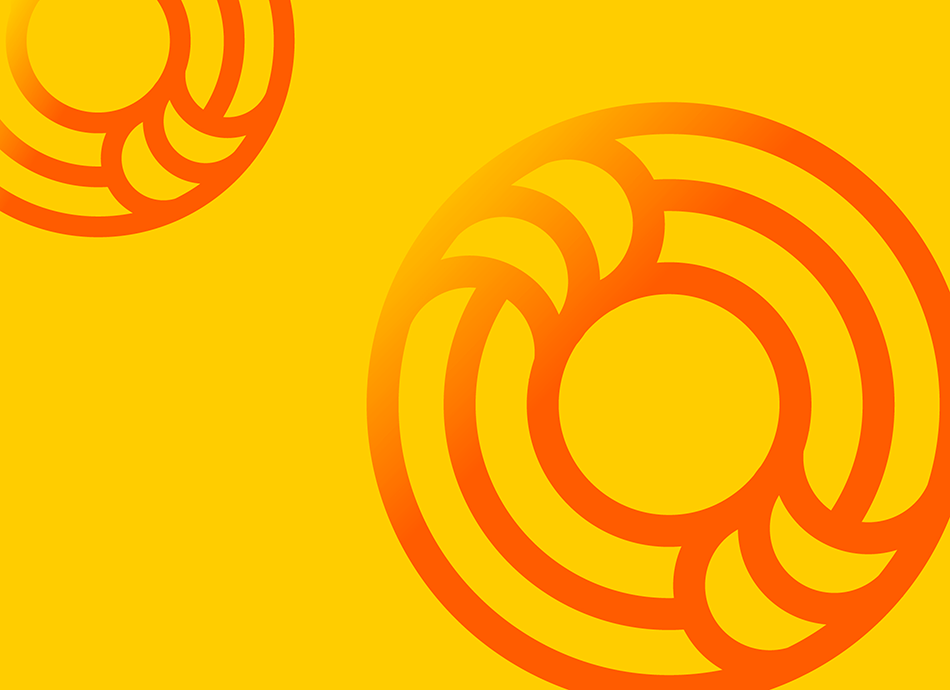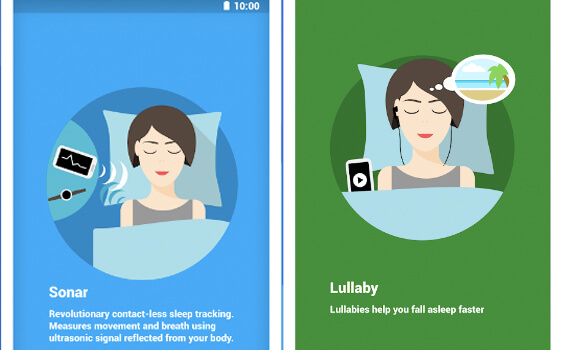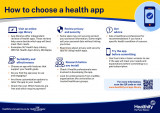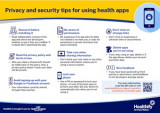You can now add Healthify as a preferred source on Google. Click here to see us when you search Google.
Sleep as Android app
Sleep as Android app
- An app to help you track your sleep cycle patterns.

| Sleep as Android app | By Urbandroid Team |
|
Features
|
|
| Clinical review |
Free version:
Paid version:
|
| Security and privacy |
Read more about safety and security when using apps. Brochures: |
| Cost | Basic (free 2-week trial) or paid upgrade Learn more about app charges(external link) |
| How to get the app |
For a two week trial, users have access to all features, including snore recorder and sleep aid. This app utilizes CAPTCHA technology for its smart alarm to ensure the user is awake and out of bed. To turn off the alarm, the user must scan a QR code located in the bathroom or shake the phone heavily. It also can sync to a commercially available smartwatch to track sleep using the watch's built-in motion sensor, or accelerometer, and an anti-snoring feature that vibrates the watch when it detects snoring. The upgraded version, also a featured app, Sleep as Android Unlock, gives users unlimited access to the app's features beyond the two-week trial.
For a more detailed description of the app, see Google Play(external link) or App website(external link) and for a detailed review, see reviews below.

For the complete app description, go to Google Play(external link) (android) or the app website(external link).
| PROS | CONS |
|---|---|
|
✔ The system used to monitor sleep is called actigraphy which is typically moderately accurate compared to polysomnography. |
✘ I could not find any evidence of the app having been validated in research for it’s accuracy compared to the gold standard of polysomnography. |
Clinical review
Free version:
![]()
Paid version:
![]()
Reviewer: Dr Jeremy Steinberg, GP
Date of review: April 2018
Platform: Android
Version: 20180316
Comments: This app is useful for people with insomnia who would like to record a sleep diary. It can enable them to assess insomnia treatment effects and night to night variations in sleep.
The type of algorithm that this app uses to track sleep is called actigraphy. This determines wakefulness based on movement patterns. It is important to note that it isn’t as accurate as the gold standard polysomnography. Actigraphy is particularly inaccurate for those with very poor sleep, restless legs and who have minimal activity during times of wakefulness, and in these cases I would not recommend the use of this app. Actigraphy can also over-detect times of wakefulness compared to a manual sleep log which could cause anxiety.
I would probably recommend doing a manual sleep log rather than using this app. However, if this was too difficult or the motivation to do this was lacking then the app could be trailed, but I would recommend first comparing it to a manual sleep log after using both for a few days. If the app was going to be used, then one could look at treatment effects and night to night variability.
Another feature of this app is the “smart-alarm” which claims to wake you up during non-REM sleep and thereby improve the wakening experience. This would depend on the apps ability to detect one’s sleep cycle which has not been demonstrated in research (detecting sleep cycles needs tracking brain waves), and the so called “90-minute sleep cycle” is a bit of a myth. In addition, the concept of a “smart-alarm” improving the alertness at the time of wakening has not been proven, and there is limited research that refutes this hypothesis. Personally, I felt less awake when using this feature.
Overall, technically it is a quality app. However, I am uncertain if those with insomnia would get much benefit from its use and was overall quite gimmicky. For the main user group that the app targets – those with poor sleep – actigraphy is not very accurate. I am surprised that despite the popularity of the app and the huge breadth of features that the developers have not published any research assessing its effectiveness.
Safety concerns: None.
Koffel E, Kuhn E, Petsoulis N, et al. A randomized controlled pilot study of CBT-I Coach: Feasibility, acceptability, and potential impact of a mobile phone application for patients in cognitive behavioral therapy for insomnia.(external link) Health Informatics J. 2016 Jun 27.
Kuhn E, Weiss BJ, Taylor KL, et al. CBT-I Coach: A Description and Clinician Perceptions of a Mobile App for Cognitive Behavioral Therapy for Insomnia.(external link) J Clin Sleep Med. 2016 Apr 15;12(4):597-606.
Ko PR, Kientz JA, Choe EK, et al. Consumer Sleep Technologies: A Review of the Landscape.(external link) J Clin Sleep Med. 2015 Dec 15;11(12):1455-61.
Resources
Healthy sleep hygiene [PDF, 306 KB] Auckland DHB, NZ
Common sleep problems(external link) Health Information Translations, 2020 English(external link), Arabic(external link), Chinese (simplified)(external link), Chinese (traditional)(external link), French(external link), Hindi(external link), Japanese(external link), Korean(external link), Nepali(external link), Russian(external link), Somali(external link), Spanish(external link), Vietnamese(external link)
|
Disclaimer: The NZ Health App Library is a free consumer service to help you decide whether a health app would be suitable for you. Our review process is independent. We have no relationship with the app developers or companies and no responsibility for the service they provide. This means that if you have an issue with one of the apps we have reviewed, you will need to contact the app developer or company directly. |
Factsheets – using health apps safely

How to choose a health app
Healthify He Puna Waiora, NZ

Privacy and security tips for using health apps
Healthify He Puna Waiora, NZ
Credits: Healthify editorial team. Healthify is brought to you by Health Navigator Charitable Trust.


